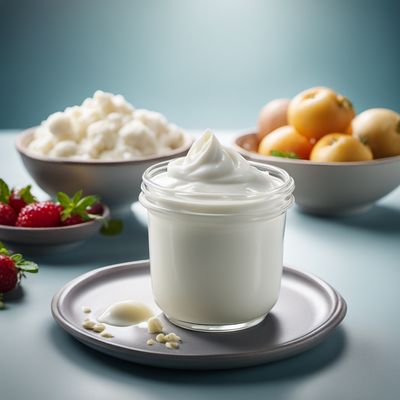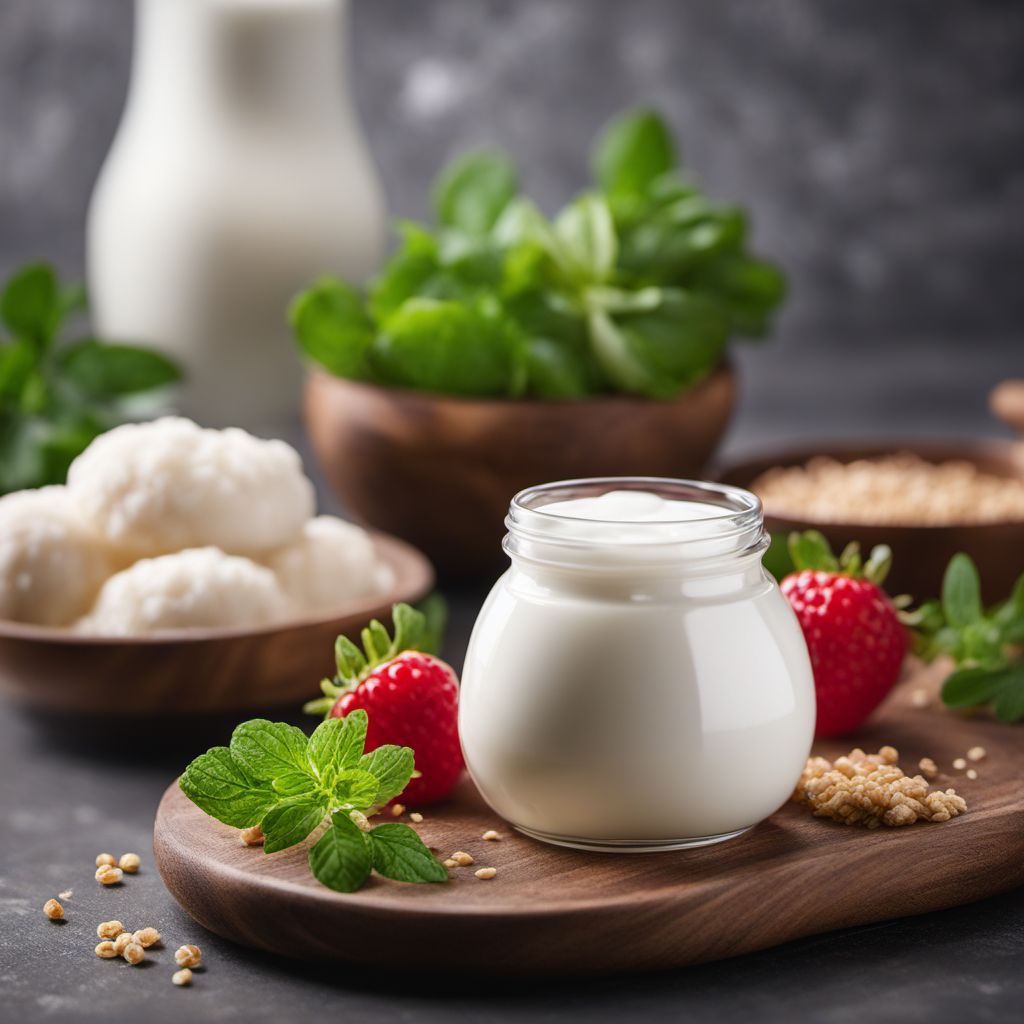
Ingredient
Yoghurt, sheep milk
Velvety Elixir: The Richness of Sheep Milk Yoghurt
Sheep milk yoghurt is known for its exceptionally smooth and creamy texture, which is a result of the higher fat content in sheep's milk. It has a slightly tangy and rich flavor, with a subtle sweetness that sets it apart from cow's milk yoghurt. The yoghurt has a pale ivory color and a velvety consistency that melts in your mouth.
Origins and history
Sheep milk yoghurt has been enjoyed for centuries in various cultures around the world. It has its roots in the Mediterranean region, where sheep farming has a long history. The use of sheep milk to make yoghurt can be traced back to ancient times, with evidence of its consumption in ancient Greece and the Middle East. Today, sheep milk yoghurt is still popular in many Mediterranean and Middle Eastern cuisines.
Nutritional information
Sheep milk yoghurt is a good source of protein, calcium, and essential vitamins and minerals. It is also lower in lactose compared to cow's milk yoghurt, making it a suitable option for individuals with lactose intolerance. A 100-gram serving of sheep milk yoghurt provides approximately 150 calories, 10 grams of fat, 8 grams of protein, and 6 grams of carbohydrates.
Allergens
Sheep milk yoghurt may contain lactose and milk proteins, which can trigger allergies or intolerances in some individuals.
How to select
When selecting sheep milk yoghurt, look for a product that is made from high-quality sheep milk and has a smooth and creamy consistency. Check the label for any added sugars or artificial ingredients. Opt for organic or locally sourced options whenever possible to support sustainable farming practices.
Storage recommendations
To maintain the freshness and quality of sheep milk yoghurt, it is best stored in the refrigerator at temperatures between 35°F and 40°F (1.7°C and 4.4°C). Keep it tightly sealed to prevent any off-flavors or odors from affecting the yoghurt. Consume it within the recommended shelf life mentioned on the packaging for the best taste and texture.
How to produce
Sheep milk yoghurt can be produced at home by using sheep milk and a yoghurt starter culture. Heat the milk to a specific temperature, add the starter culture, and allow it to ferment for several hours until it thickens into yoghurt. Detailed instructions and specific ratios can be found in yoghurt-making recipes or guides.
Preparation tips
Sheep milk yoghurt can be enjoyed on its own as a creamy and indulgent snack, or it can be used as a versatile ingredient in both sweet and savory recipes. It adds a luxurious touch to smoothies, parfaits, and desserts, and it can also be used as a tangy and creamy base for dressings, dips, and sauces. Its richness and unique flavor make it a favorite among chefs for creating decadent dishes.
Culinary uses
Sheep milk yoghurt is commonly used in Mediterranean and Middle Eastern cuisines, where it is incorporated into traditional dishes such as tzatziki, labneh, and various desserts. It is also available in specialty stores or online retailers that cater to dairy enthusiasts and those seeking unique dairy products.
Availability
Sheep milk yoghurt is commonly available in countries with a strong tradition of sheep farming and dairy production, such as Greece, Turkey, France, and New Zealand.
More ingredients from this category
Recipes using Yoghurt, sheep milk » Browse all
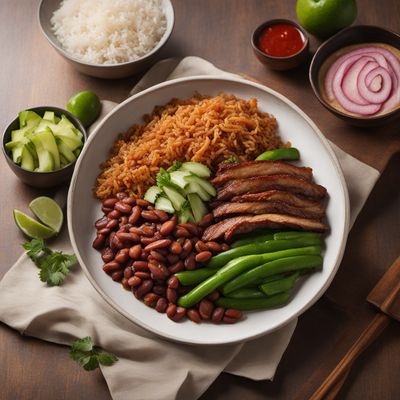
Hakka-style Bandeja Paisa
Savory Fusion: Hakka-style Bandeja Paisa - A Culinary Delight
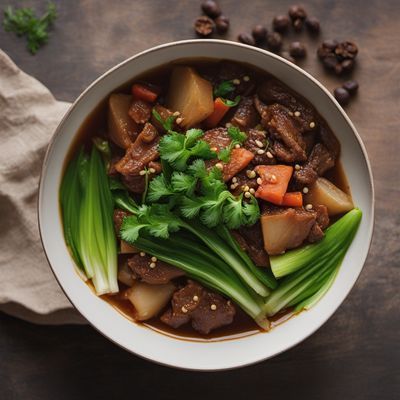
Liaoning-style Cau Cau
Savory Liaoning Cau Cau: A Fusion of Peruvian and Chinese Flavors

Shanxi-style Crispy Pork Belly
Golden Crispy Delight: Shanxi-style Crispy Pork Belly

Pembrokeshire-style Bara Brith Cha Siu Bao
Welsh Twist on Chinese Cha Siu Bao: Pembrokeshire Bara Brith Buns

Refreshing Buckwheat Noodles with Spicy Sauce
Chilled Delight: Spicy Makguksu Noodles

Korean Bibimbap with Spicy Gochujang Sauce
Flavors of Korea: A Vibrant Twist on Bibimbap

Teochew-style Yam Cake
Savory Yam Delight: Teochew-style Yam Cake
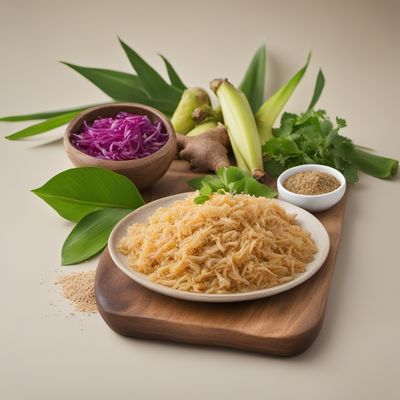
Marshallese Flaki - A Taste of the Islands
Island-Inspired Flaki: A Marshallese Twist on a Polish Classic

Traditional Bánh Chưng Recipe
Hearty Rice Dumplings: A Vietnamese Delicacy

Savory Turnip Cake with a Twist
Crispy Turnip Delight: A Modern Twist on Chinese Cuisine
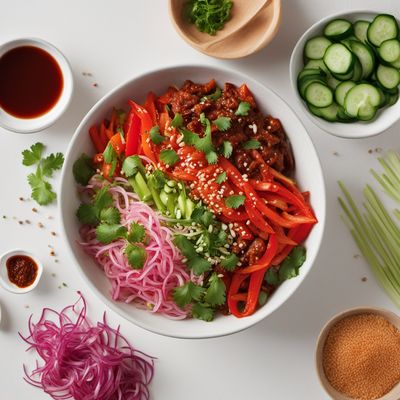
Korean-style Ensalada Malagueña
Kimchi-infused Ensalada Malagueña: A Fusion of Spanish and Korean Flavors

Pào Cài Stir-Fry with Tofu and Shiitake Mushrooms
Savory Pào Cài Delight: A Vegan Stir-Fry with Tofu and Shiitake Mushrooms
